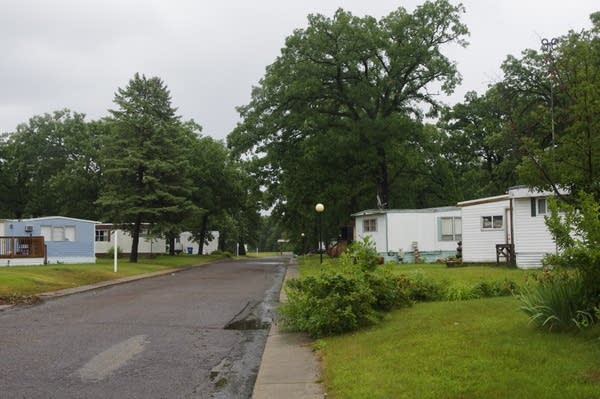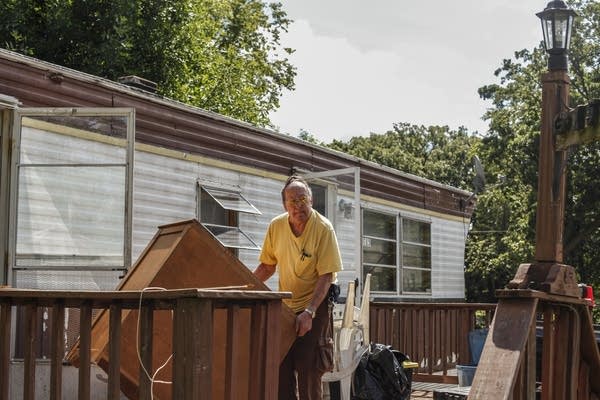Are mobile home parks the answer to Minnesota's affordable housing shortage?

As pressure continues to mount for the creation of affordable housing, some worry that lower-cost options are vanishing. Manufactured housing parks are less common than decades ago, and some that remain face financial challenges.
The Metropolitan Council found that Minnesota has lost 12 manufactured home communities within the last 30 years, displacing many low-income households.
A 2017 Met Council report looked at why manufactured home parks matter in the region. Freya Thamman, who works in community planning at the Met Council, said closures in the suburbs left many families without options.
"When it comes to manufactured housing, preservation is so important as closure means a loss of affordable housing, and affordable housing that we're really not seeing built,” Thamman said.
Create a More Connected Minnesota
MPR News is your trusted resource for the news you need. With your support, MPR News brings accessible, courageous journalism and authentic conversation to everyone - free of paywalls and barriers. Your gift makes a difference.
In many manufactured home communities, residents own their homes, but pay rent for the land.
“Even brand new [homes] don’t sell for much more than $50,000. It’s low density and it’s very affordable,” said Ed Goetz, professor of Urban and Regional Planning at the University of Minnesota's Humphrey School, who specializes in affordable housing and community development.
The Met Council report shows immigrant families, people with disabilities and retirees depend on manufactured or mobile home parks.

Willow Ridge Mobile Home Park in Rochester, Minn., is one of those places where people tend to live for decades. Willow Ridge's manager Dan Mulholland said residents appreciate having a safe place to live.
"At Willow Ridge, half of the homes are multigenerational,” Mulholland said. “The folks, the parents moved in, in the early 80s. And the kids are now living there."
Mulholland adds that despite management's best efforts, the park is slowly becoming less affordable due to infrastructure costs.
At the park, management handles all wastewater treatment and public water supply. Changes to wastewater treatment requirements are going to cost the park and neighborhood approximately $4 million.
Mulholland said that costs like this pop up frequently.
Victoria Clark, executive director of Northcountry Cooperative Foundation, says maintaining manufactured home communities is expensive for many owners.
"There are two main reasons for park closure,” Clark said. “The first reason is deferred maintenance of the private water, sewer, road and utility infrastructure, which is incredibly capital intensive to maintain. It's more cost effective to redevelop it for a new use. And then other factor is just redevelopment pressure.”
Clark’s foundation helps develop housing co-ops. When manufactured home parks become co-op communities, residents can more easily share the costs of maintaining the property, Clark said — especially if they own, not rent, the land.
Despite manufactured home parks closing, production of manufactured homes has increased. Mark Brunner, president of the Manufactured and Modular Home Association of Minnesota, says many homes are being placed on land owned by the buyers.
"We're growing. We actually can't keep up with the demand for new home production right now. I have member plants in Minnesota that have the ability to do an expansion,” he said.
Brunner said his members see customers increasingly interested in manufactured homes as an affordable option, but he acknowledges some land can be hard to come by, especially in suburban areas.
"I think that maybe a primary issue may just be the availability of land that's been developed," Brunner said.
The Metropolitan Council is working on a new report with updated information to be released later this year.